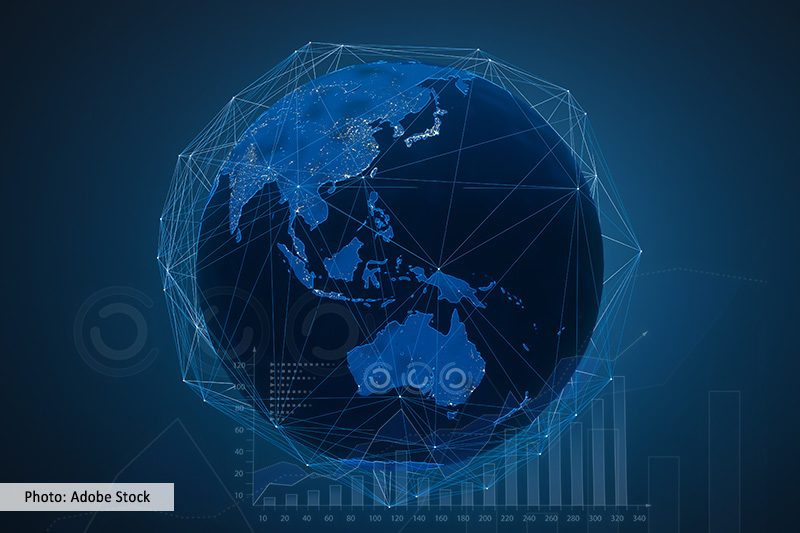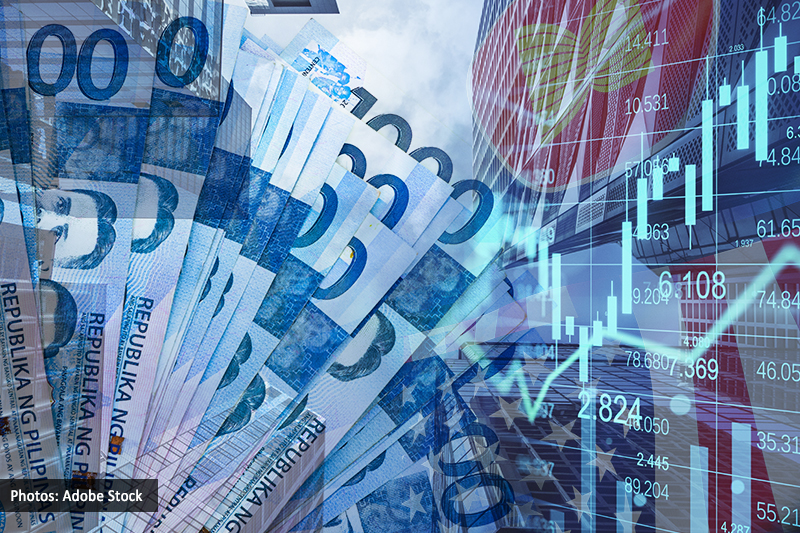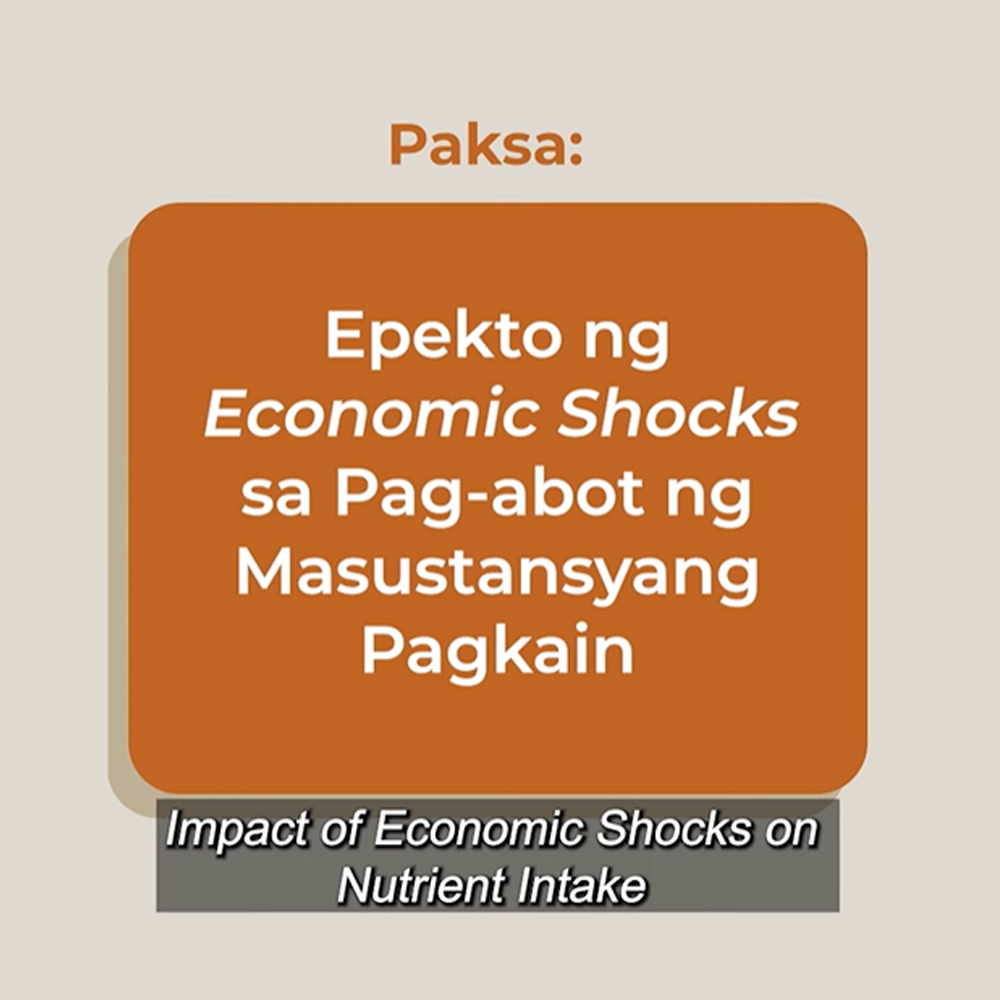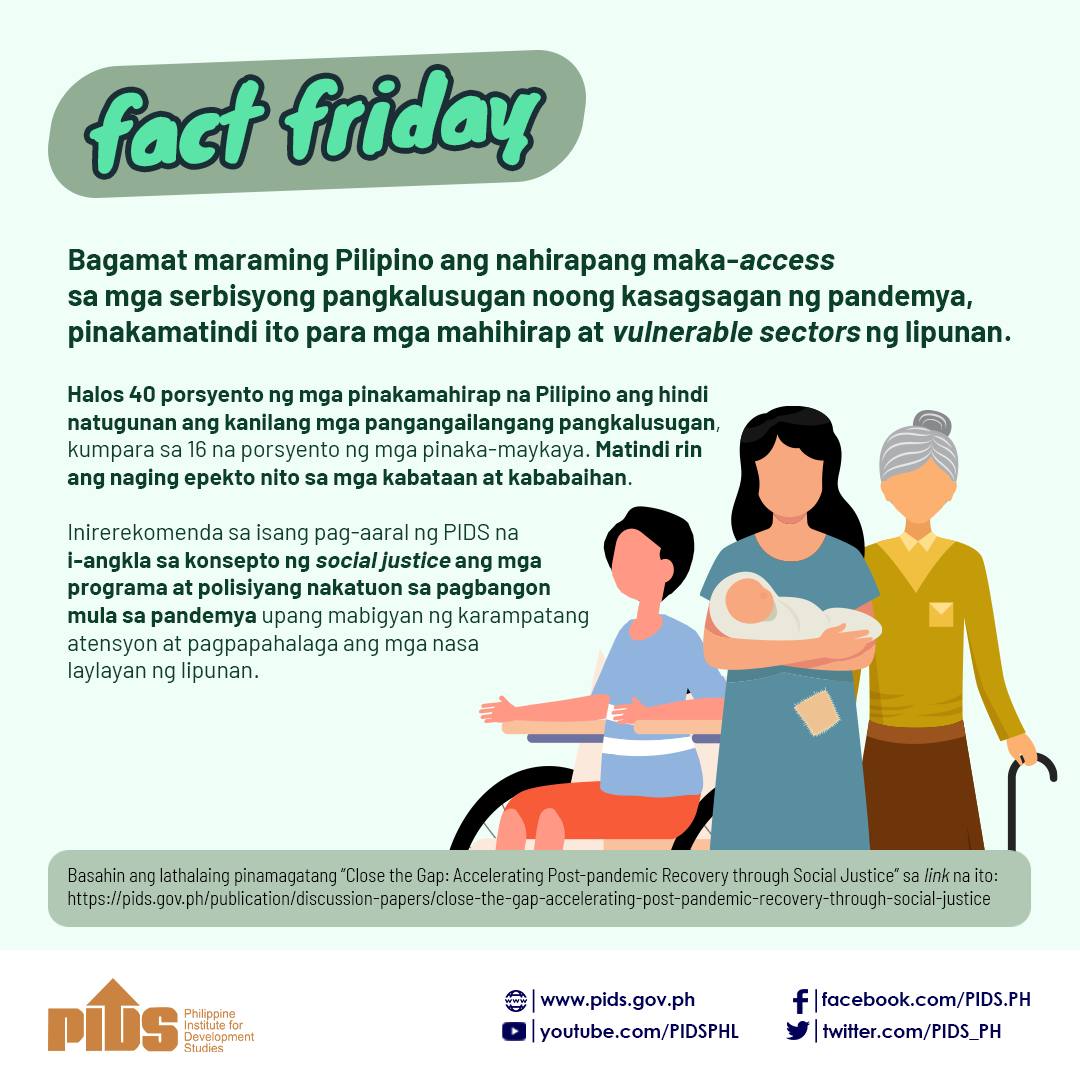THE Philippines’s progress in achieving the Sustainable Development Goals (SDGs) suffered under the weight of the pandemic and could lead to a regression in the country’s performance in the global goals, according to the Philippine Institute for Development Studies (PIDS).
In the United Nations Common Country Assessment Update for the Philippines, PIDS Research Fellow Adoracion M. Navarro, President Celia M. Reyes, and Research Fellow Kris A. Francisco said the Social Amelioration Program (SAP) did not prevent millions from becoming poor due to lockdowns imposed to avert the spread of Covid-19.
Based on a simulation, Covid-19 could increase poverty incidence among families and population to 18 percent and 23.8 percent, respectively. With the same, poverty incidence could go down to 13.8 percent for families and 19.4 percent for population, regardless of whether 14 million or 18 million received the subsidy.
“The simulation results suggest that around 1.44 million families covering about 7.53 million individuals will become poor as a result of the pandemic,” the authors said.
“The SAP reduces the number of new poor to 400,000 families or 2.82 million individuals. Clearly, given the projected economic performance, poverty will increase despite the presence of the SAP,” they added.
This is one reason the authors said could cause the country’s regression in achieving SDG 1 on eradicating poverty. Prior to the pandemic, the country had already cut its poverty incidence.
“Significant progress in poverty reduction, the bedrock of all SDGs, is among the recent key accomplishments of the Philippines but it is now evident that this is a fragile progress due to the pandemic,” they said.
Apart from poverty, targets where the country may have regressed include SDG 4 on quality education, given that basic education quality remained a problem. Inequality in access to ICT infrastructure during the pandemic is seen to worsen this.
The target on gender equality under SDG 5 is also at risk of regression. During the lockdowns, violence against women and children continued and may have worsened.
Performance may have also regressed in terms of decent work and economic growth under SDG 8, as millions lost their jobs during the lockdown.
The country’s performance on SDG 9 which focused on industry, innovation, and infrastructure may have worsened because the country continues to suffer from low levels of industrialization; research and development investments remain low; and the country’s infrastructure stock remains low.
For SDG 11 on sustainable cities and communities, the authors said efforts may have regressed because decent housing remains a problem for 2.45 million Filipinos.
The pandemic also exposed the weaknesses of disaster mitigation and adaptation efforts, which led to displacements and the failure to maintain physical distancing in evacuation centers.
“Covid-19 impacts are anticipated to result in regression in human development capacities and opportunities. These are also expected to thwart economic prosperity, change consumption behavior and affect the environment,” the researchers said.
Delays in peacekeeping activities and fiscal resources realignments might also affect the communities that are trying to recover from violence and armed conflicts, especially in Mindanao,” they added.
Meanwhile, efforts to attain the SDGs has been an uphill battle for the country since efforts to attain several goals were deemed off-track even before the pandemic.
These goals are SDG 2 on hunger, given the country’s slow improvement in arresting stunting and wasting among children, and rising numbers of overweight children.
The list also included SDG 3 on health, particularly because of the increase in HIV cases and the low number of public health facilities with essential medicines.
PIDS researchers also said SDG 6 on access to water and sanitation was off-track given the poor management of, and access to water and sanitation facilities by households.
The country was also off-track in SDG 12 on sustainable consumption and production as hazardous waste generated per capita kept growing.
The study said progress in achieving SDG 10 on reducing inequality was off-track due to regional income disparities and the persistence of rural poverty.
The Philippine performance was also off-track on SDG 16 on peace, justice, and strong institutions because of the deterioration in performance in the World Justice Project Rule of Law Index, including fundamental human rights, and in certain components of the Worldwide Governance Indicators.
“The off-track path also implies that left-behind groups with respect to these SDG sub- indicators were starting from a more disadvantaged position when the pandemic struck, and the lockdowns and consequent economic and political hardships brought them additional misery. Social protection should therefore adequately target these groups,” the researchers said.
The SDGs comprise 17 goals with around 169 targets with 230 global indicators adopted in September 2015.
The Global Goals aim to end poverty and hunger, promote universal health, education for all and lifelong learning, achieve gender equality, sustainable water management, ensure sustainable energy for all, decent work for all, resilient infrastructure, and reduce income inequality between and among countries.
The goals also include: create sustainable cities, ensure sustainable consumption and production, take action against climate change, conserve and sustainably use oceans and marine resources, reduce biodiversity loss, achieve peaceful and inclusive societies, and revitalize global partnership for development.












